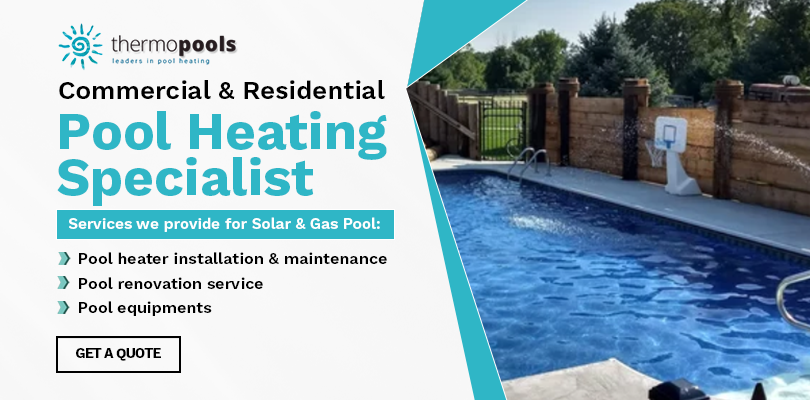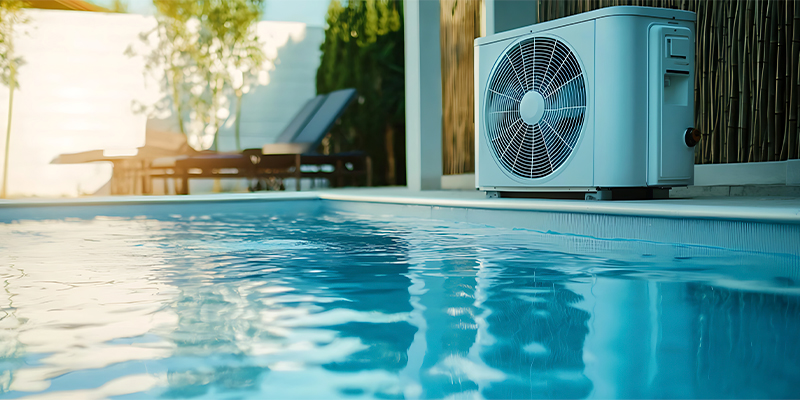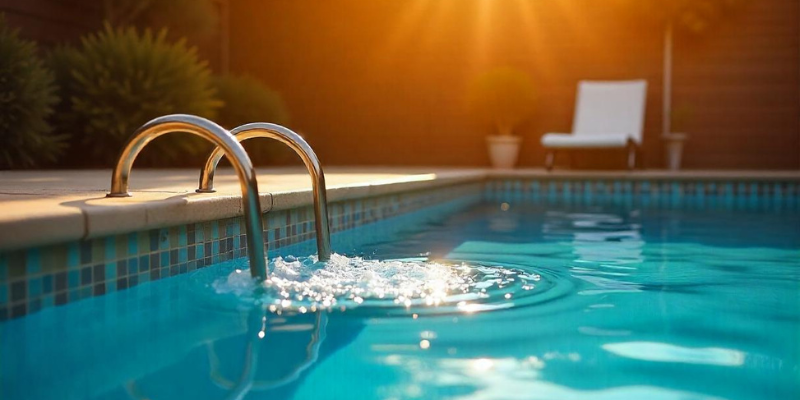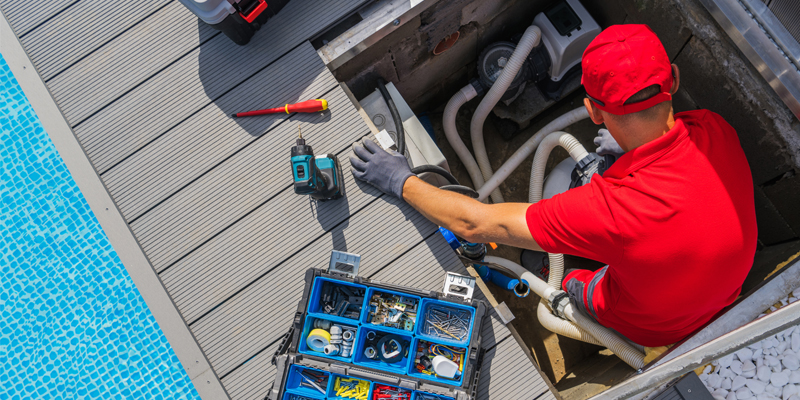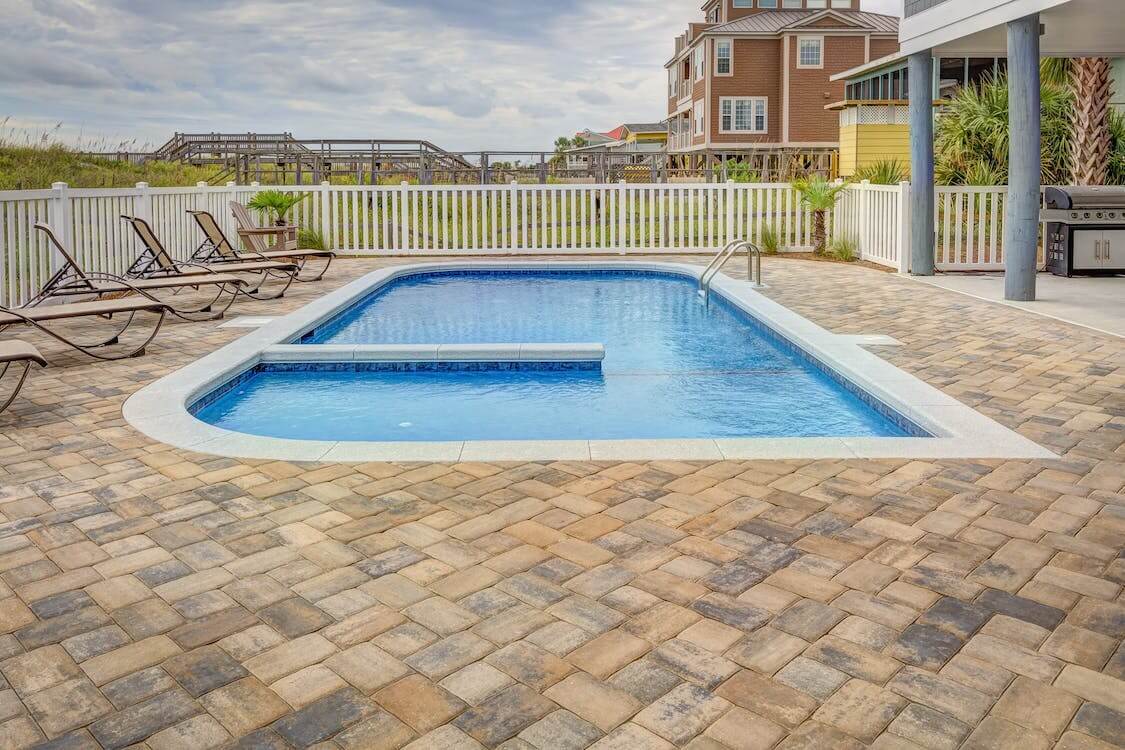
A swimming pool is a beautiful addition to your home; however, you must have a pool heating system to keep the water heated when the outside temperature falls to get the most out of your pool. Furthermore, having the ability to swim any day of the year is very fulfilling.
Today’s market offers various pool heating solutions, including gas, electric, solar energy and pool heat pumps. If you want to swim all through the year cost-effectively, then you should install a pool heat pump.
How Does A Pool Heat Pump Work?
A pool heat pump uses electric energy and draws heat from the air to heat the pool water. With the help of an outside evaporator air coil, the fan passes around the heated air that has been extracted. Heat is ingested and converted into a gas using the liquid refrigerant inside the evaporator coil.
The pool heat pump warms the gas in the coil before passing it into the compressor. Accordingly, the temperature increases and hot gas is generated, which is passed through the heat exchanger condenser. So the pool heat pump distributes the pool water pulled from the pool, heats it, and then returns the heated water to the pool. The hot gas heats the water when the pool’s water and the liquid refrigerant gas are circulated simultaneously via the heat exchanger.
As it undergoes this process, the water warms up by around three degrees, and warmer water enters the pool. The heated gas moves through the condenser coil, which changes into liquid again and then goes into the evaporator to start the entire process again.
Vital Benefits of Using a Heat Pump to Heat Your Pool
1. Steady Temperature – Throughout the Year
- Pool heat pumps use the current heat available in the air instead of the sunlight to operate. So it does not matter what the climate is outside; your pool heat pump can continually heat it to the desired temperature because ambient heat is always present, even on cooler winter days.
- Using a pool cover, particularly in the cooler months, is recommended to preserve temperature. If you don’t want or can’t use a pool cover, it is vital to upsize the heat pump. It will facilitate the heat pump to uphold the water temperature and manage the heat loss overnight without a pool cover.
Conversely, solar pool heaters depend entirely on sunlight, so they function correctly only in the summer and shoulder months.
2. Durability
- Typically, pool heating systems are pricier than gas pool heaters. Still, you’ll reap significant savings on operating costs compared to gas, so the initial purchase price pays for itself quickly, often within a year.
- A pool heat pump can serve you for between 8 and 20 years. Conversely, most gas and electric heaters generally serve for 5 to 10 years.
- Carrying out annual maintenance for your pool heat pump will provide you with the best efficiency and longevity.
3. Efficient & Safe Heat Pumps
Thermo Pools supply and install an extensive range of inverter Oasis heat pumps for all pool and spa sizes.
4. Pollution Free
Combustion of some form is needed for generating heat. Gas heaters continually burn gas to produce heat. It has some striking adverse environmental effects as it harms the Ozone layer significantly due to a high rate of C02 emissions. In comparison, pool heat pumps are environmentally friendly and do not release carbon dioxide. That means while you’re exercising or relaxing in the warm water of your pool, you’re also doing your part to shield the environment.
5. Cost Effective
As pool heat pumps are very energy efficient, they are also affordable. A pool heat pump can cost you more than an electric or gas heater, but its considerably lower operating cost can cover it up.
6. Energy Efficiency
Heat pumps are one of the most energy-efficient pool heating options compared to gas pool heating. Furthermore, pool heat pumps are considerably less pricey because of how they generate heat. Pool heat pumps use a small amount of electricity to operate a fan and compressor that pull in hot air, change it into heat energy, and transfer it straight to your pool water.
On the other hand, electric resistance and gas pool heaters are known for their quickness, but they are costlier to operate with high monthly operating costs.
Final Words
Investing in a pool heat pump makes sense, as it has higher energy efficiency ratings, lower running costs, and is a durable and environmentally-friendly heat generation method. Using a pool heat pump, you can extend your pool time throughout the year.
If you need assistance buying a pool heat pump in Sydney, contact Thermo Pools at (02) 88 50 40 30 & Check our Google Reviews, our experienced and friendly team will gladly assist you.





